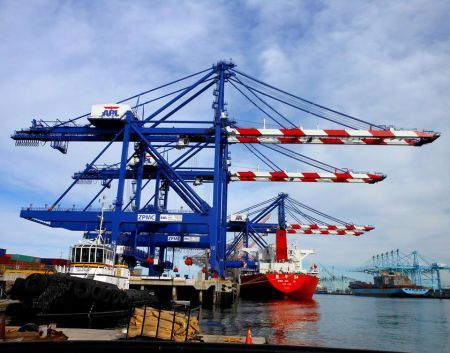
The ILWU has now targeted the ports of Los Angeles and Long Beach by unilaterally refusing to dispatch hundreds of qualified, skilled workers for critically important positions transporting containers in terminal yards at the nation’s largest port complex, the representative of the U.S. West Coast carriers and terminal operators said in a written statement.
The ILWU informed the PMA that starting Monday, November 3, it would not dispatch qualified ILWU members, most of whom have significant experience operating yard cranes in the terminal, placing cargo containers on trucks and rail cars for delivery to customers, said the PMA in a written statement.
“We’ve used the same dispatch procedures for qualified crane operators since 1999,” said PMA spokesperson Wade Gates. “After 15 years, the ILWU leadership has unilaterally decided to change the rules for hundreds of qualified workers who are dispatched daily to help operate terminals at the Los Angeles and Long Beach ports.”
Terminal congestion has been a mounting issue at Southern California port terminals due to a variety of factors, including a surge in cargo volume, shortage of chassis and rail cars, and insufficient numbers of truck drivers. Given these already congested conditions, the ILWU’s refusal to fill critical yard crane positions makes an already difficult situation far worse, says the PMA.
Many of the qualified, skilled members the ILWU is withholding have more than 1,000 hours of experience operating this equipment. As a result, the PMA estimates that the ILWU’s withholding of skilled workers will leave half of the yard crane positions unfilled unless corrective actions are taken.
“Although the existing congestion has had ripple effects throughout the supply chain, it is the ILWU slowdowns that now have the potential to bring the port complex to the brink of gridlock,” Gates said. “The ILWU’s orchestrated job actions are threatening the West Coast’s busiest ports and potentially billions of dollars in commerce. It is essential that the ILWU return to normal operations, as promised, so that we can continue meaningful negotiations in a productive environment free of union-staged slowdowns that are disrupting terminal operations at our largest ports.”
We use cookies to improve your experience. By continuing to use our site, you accept our Cookies, Privacy Policy,Terms and Conditions. Close X